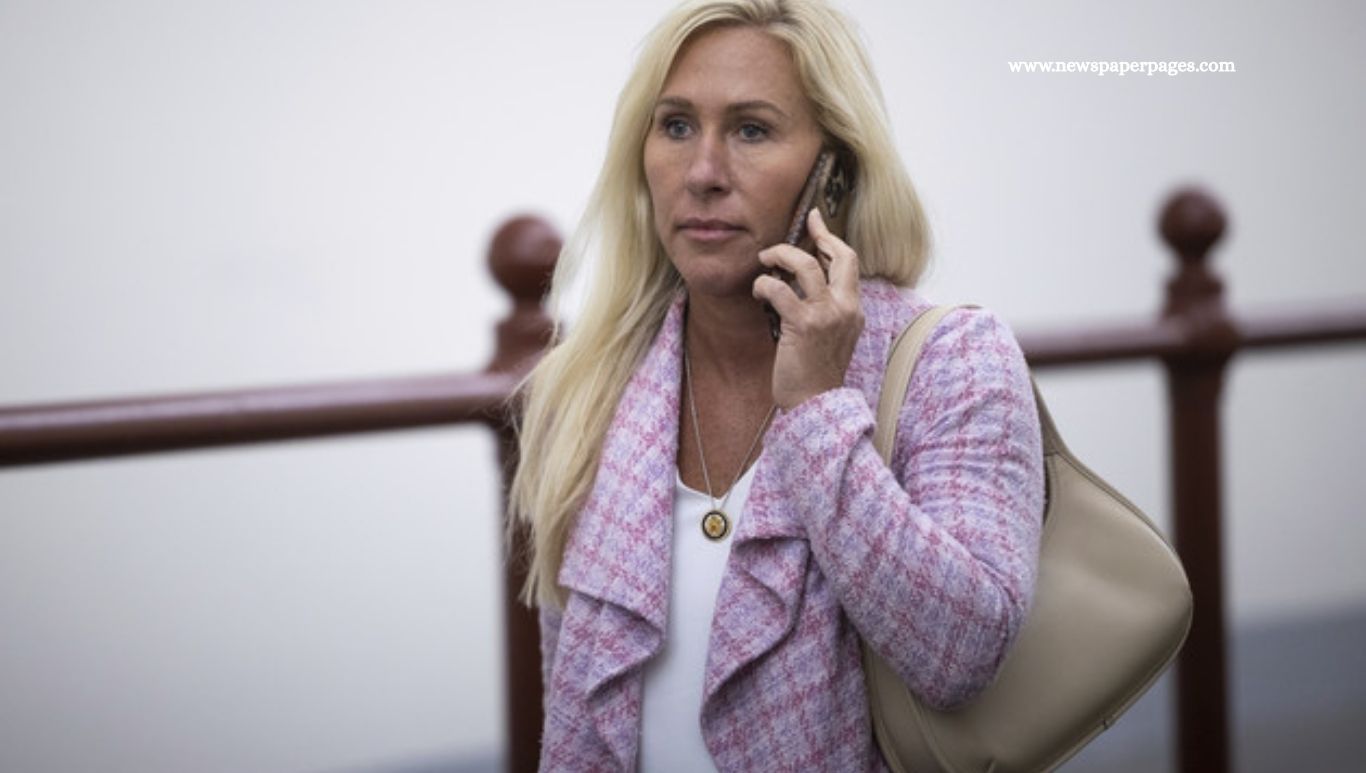Brian Kemp’s recent decision to forgo a Senate run represents more than just a missed opportunity for Georgia Republicans—it signals deeper challenges ahead for the GOP. With the Senate map becoming more unpredictable, the party’s once-optimistic outlook is starting to show signs of strain. As Republicans face a tougher road to securing the Senate majority, key figures like Kemp and other high-profile potential candidates are backing away, leaving the GOP to navigate a more complex political landscape.
Rising Challenges for Republicans
Kemp’s decision to step out of the race is just the latest indicator of how uncertain Republican prospects have become. In the wake of Kemp and former New Hampshire Governor Chris Sununu declining GOP recruitment offers, the party faces heightened competition in Senate races. Hardline conservative figures, such as Texas Attorney General Ken Paxton, are already challenging establishment Republicans like Senator John Cornyn, adding another layer of unpredictability.
Republicans have long been expected to retain the Senate majority, but the growing list of challenges—including primaries in key states like Louisiana and North Carolina—has made the situation less certain. Senator Ron Johnson (R-Wis.) succinctly captured the mood, stating, “Midterm elections are generally tough for the party in power. I’m always worried.”
Read More: Trump’s Justice Department Is Wasting Its Most Valuable Resource
Economic Uncertainty: A Key Factor in the 2026 Senate Race
As President Donald Trump’s tariffs create global market instability, the GOP’s Senate prospects may become even more fragile. Economic challenges are expected to play a significant role in the upcoming midterms, with uncertain economic conditions likely affecting voters’ decisions. The GOP’s ability to hold the Senate could be contingent on the state of the economy come election time.
Republican strategists have admitted their recruitment efforts may have misjudged the political environment. While the party would have preferred Kemp and Sununu to run, the reality is that their chances were always slim, especially given the current political climate. However, Republicans remain hopeful about their chances in Georgia, where a growing field of candidates is emerging, despite concerns over controversial figures like Marjorie Taylor Greene.
The Senate Race in Georgia and Beyond
Georgia’s Senate race is expected to be one of the most competitive in the country. While some Republicans express confidence that a GOP candidate can defeat Democrat Jon Ossoff in 2026, others worry about the impact of polarizing candidates like Greene. Still, Republicans are determined to make the race competitive, despite Kemp’s absence.
In Michigan, another battleground state, the GOP faces a potential primary challenge with Rep. Bill Huizenga contemplating a run against former Rep. Mike Rogers for the seat currently held by retiring Senator Gary Peters. Meanwhile, in Texas, efforts to ensure Senator Cornyn’s nomination are ramping up, as the GOP seeks to prevent a challenge from Paxton.
Democratic Viewpoint: A Possible Advantage?
While Republicans struggle with their recruitment efforts, Democrats are quick to point out the challenges facing the GOP. The Democratic Senatorial Campaign Committee (DSCC) has argued that every Republican candidate will have to answer for Trump’s policies, especially those related to the economic fallout from his tariffs. DSCC spokesperson Maeve Coyle expressed confidence that the party’s early setbacks could turn into an advantage for Democrats, even as they face a challenging map in 2026.
Republicans’ Strategic Focus
Despite recruitment setbacks, GOP strategists remain optimistic about their prospects. National Republican Senatorial Committee (NRSC) spokesperson Joanna Rodriguez reiterated that Republicans must hold every red seat and target battleground states like Georgia, Michigan, and New Hampshire. For now, the GOP is focusing on shoring up its position and positioning itself for the challenges ahead.
Recruitment Challenges: A Reflection of Washington’s Realities
Senators like Rick Scott (R-Fla.) have suggested that the difficulty in recruiting high-profile candidates reflects a broader truth about Washington. Governors, they argue, are often reluctant to move to Washington due to the legislative gridlock and difficulty in achieving results compared to their executive roles at the state level.
Conclusion: A Turbulent Road Ahead for the GOP
The GOP’s path to retaining Senate control in 2026 is fraught with challenges, from tough primaries and difficult economic conditions to the uncertainty created by Trump’s policies. While Republicans continue to project confidence, it’s clear that their prospects are not as secure as they once seemed. As the race intensifies, the GOP will need to adapt quickly to the changing dynamics if they hope to maintain their grip on the Senate.
Frequently Asked Questions
Why did Brian Kemp decide not to run for Senate?
Kemp’s decision not to run reflects broader concerns about the challenging political landscape and the difficulty of campaigning in a contested Senate race.
How does Trump’s economic policy affect the GOP’s chances?
Trump’s tariffs have caused global market uncertainty, which could hurt the GOP’s chances in the 2026 elections as economic conditions play a significant role in voter behavior.
Who are the GOP’s main competitors in the Senate race?
The GOP faces challenges from hardline conservatives like Ken Paxton in Texas, along with potential primary threats in states like Louisiana and North Carolina.
How is the GOP handling recruitment challenges?
Despite setbacks with Kemp and Sununu, the GOP is focused on ensuring strong candidates emerge, especially in battleground states like Georgia and Michigan.
What role does the economy play in the 2026 Senate elections?
Economic conditions will heavily influence the race, with Republicans facing an uncertain environment if the economy is struggling closer to Election Day.
Will Marjorie Taylor Greene impact the GOP’s Senate chances?
Greene’s controversial profile has raised concerns among some Republicans, though the party remains hopeful about competing in Georgia, regardless of her candidacy.
What is the Democratic response to Republican struggles?
Democrats are capitalizing on the GOP’s recruitment difficulties, with confidence that Trump’s policies will be a liability for Republicans in 2026.
Conclusion
As the 2026 Senate races approach, the GOP faces a series of hurdles, from recruitment issues to the looming impact of economic uncertainty. While the party remains confident, it’s clear that the road ahead will be much more challenging than anticipated.

